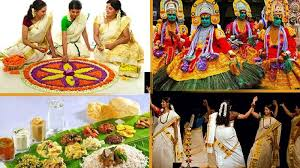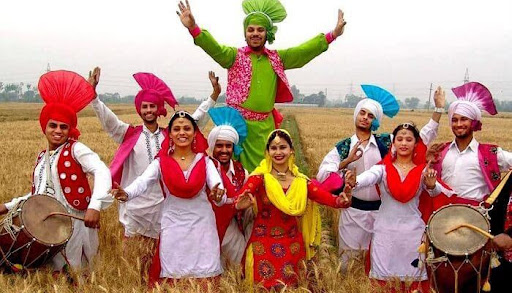India is a land of vibrant culture and rich traditions, where every corner bursts into celebration at different times of the year. Festivals in India are not just events; they are an integral part of life that brings people together, transcending boundaries and differences.
From dazzling lights to colorful powders, each festival tells a story steeped in history and spirituality. Whether you’re drawn to the enchanting melodies or the mouthwatering delicacies, participating in these festivities offers a unique glimpse into India’s diverse heritage.
As we journey through this tapestry of celebrations, let’s explore eight Indian festivals that truly stand out—not only for their grandeur but also for their deep cultural significance. Each one invites you to experience joy, unity, and tradition like never before!
Table of Contents
The Importance of Indian Festivals in Indian Culture
Festivals hold a special place in Indian culture. They bring people together, transcending regional and linguistic barriers. Each celebration is an opportunity to embrace diversity.
These occasions foster unity among families and communities. Friends gather, exchanging sweets and gifts while sharing laughter and joy. It’s a time when relationships are strengthened through shared experiences.
Moreover, festivals serve as reminders of traditions passed down through generations. They connect the present with the past, allowing individuals to honor their heritage.
Spirituality often takes center stage during these events. Many festivals involve rituals that reflect deep-rooted beliefs and values, reinforcing moral lessons.
The vibrant colors, sounds of music, and aromatic delicacies create an atmosphere of happiness that permeates daily life. Celebrating these moments cultivates gratitude for life’s blessings and promotes a sense of belonging among participants in this rich cultural tapestry.
Diwali: The Festival of Lights
Diwali, celebrated by millions across India and beyond, is known as the Festival of Lights. This vibrant festival symbolizes the victory of light over darkness and good over evil.
Homes are adorned with oil lamps called diyas, which illuminate every corner. Families come together to create intricate rangoli designs at their doorsteps, welcoming prosperity and joy.
Fireworks paint the night sky in brilliant colors. The air fills with excitement and laughter as friends exchange sweets and gifts. Each moment captures the essence of unity.
Worshippers dedicate prayers to Goddess Lakshmi for wealth and well-being. Temples resonate with chants and hymns during this auspicious time.
Whether it’s savoring delicious treats or enjoying festive gatherings, Diwali fosters a sense of belonging among communities. It’s a time when hearts glow brighter than any diya ever could.
Holi: The Festival of Colors
Holi, the vibrant Festival of Colors, marks the arrival of spring and celebrates love, joy, and unity. It transcends barriers and brings people together in a riot of colors.

On this day, participants throw colored powders known as ‘gulal’ at one another. The air fills with laughter as friends and families engage in playful color fights. Streets become a canvas showcasing hues of red, blue, green, and yellow.
Traditionally rooted in Hindu mythology, Holi symbolizes the victory of good over evil. Tales like that of Prahlad and Holika remind us to embrace positivity.
Delicious sweets like gujiya are made to celebrate this festive spirit. The aroma wafts through neighborhoods as people gather for joyous feasts.
Music fills the atmosphere with traditional songs echoing around every corner. Dancers sway while revelers sing along enthusiastically. Holi is truly an experience that captures hearts across India and beyond.
Navratri: The Celebration of Good over Evil
Navratri is a vibrant festival that spans nine nights, celebrating the victory of good over evil. It honors Goddess Durga in her various forms, each representing different aspects of strength and power.
During these nine nights, devotees engage in fasting, prayer, and elaborate dances known as Garba and Dandiya. The atmosphere transforms into a colorful tapestry filled with music and joy.

Each night symbolizes an incarnation of the goddess, allowing worshippers to connect deeply with their spirituality. Temples resonate with chants while homes are adorned with lights and decorations.
The festive spirit fosters community bonding as families gather for celebrations. Traditional delicacies are prepared, adding flavor to the festivities.
Through rituals and performances, Navratri inspires individuals to reflect on their own struggles against negativity in life. This celebration not only strengthens faith but also promotes unity among diverse communities across India.
Eid al-Fitr: Celebrating the End of Ramadan
Eid al-Fitr, also known as the “Festival of Breaking the Fast,” marks the end of Ramadan, a month dedicated to fasting and spiritual reflection. It is a time for joy and gratitude among Muslims worldwide.
On this day, families come together to celebrate with delicious feasts. Traditional dishes vary by region but often include sweets like baklava or sheer khurma. The aroma of freshly prepared meals fills homes as everyone gathers around the table.
Charity plays a significant role during Eid al-Fitr. Before the festive prayers, it’s customary to give Zakat al-Fitr—charitable donations that ensure those in need can partake in the celebrations too.
Colorful clothes are worn, symbolizing new beginnings and unity in faith. The sound of laughter echoes through neighborhoods as people exchange greetings and gifts, reinforcing bonds within communities while embracing shared traditions.
Durga Puja: Honoring the Goddess Durga
Durga Puja is a vibrant celebration that honors the Goddess Durga, symbolizing the triumph of good over evil. This festival typically takes place in September or October and marks a significant cultural event for millions.
Throughout West Bengal and beyond, elaborate pandals are constructed, showcasing artistic representations of the goddess. Each year brings unique themes that reflect contemporary issues while retaining traditional elements.
Devotees gather to offer prayers, participate in rituals, and immerse themselves in dance and music. The atmosphere buzzes with joy as families come together to share delicious feasts and sweets.
The last day culminates in an emotional immersion of the idol into water bodies, representing her return to Mount Kailash. This poignant moment serves as a reminder of life’s cycles—celebration followed by farewell—reflecting deeper philosophical meanings within Indian culture.
Christmas: A Popularly Celebrated Festival in India
Christmas in India is a vibrant celebration that transcends religious boundaries. Though it originates from Christianity, its festive spirit has captivated people of various backgrounds across the country.

The holiday showcases dazzling decorations, twinkling lights, and beautifully adorned Christmas trees. Cities and towns transform into winter wonderlands filled with joy and cheer during December.
Families gather for midnight Mass, sharing prayers and songs that resonate through churches. Traditional carols fill the air, creating a festive ambiance that brings communities together.
Feasting plays a significant role too. From plum cakes to savory dishes like biryani or roast chicken, homes are filled with delightful aromas as families prepare special meals to share with loved ones.
In many places, you can witness unique regional customs—like the traditional Goa celebrations featuring fireworks along the coastline or Kerala’s cultural blend of Christian rituals infused with local traditions.
Onam: Kerala’s Harvest
Onam is a vibrant harvest festival celebrated in Kerala, marking the homecoming of the mythical King Mahabali. This ten-day event usually falls in August or September.
During Onam, families come together to create intricate floral arrangements called pookalam. These beautiful designs adorn homes and public spaces, symbolizing prosperity and welcome.

The festivities include traditional music, dance performances like Kathakali and Mohiniyattam, and mouth-watering feasts known as Onasadya. Served on banana leaves, this vegetarian banquet features an array of dishes that reflect Kerala’s rich culinary heritage.
Boat races add thrill to the celebrations. Teams compete fiercely while spectators cheer along the banks of backwaters.
Onam transcends religion; it unites people across communities. The spirit of generosity and joy during this time makes it an experience you won’t forget when exploring Indian festivals.
Eid-Ul-Adha: Festival of Sacrifice
Eid-Ul-Adha, also known as the Festival of Sacrifice, holds deep significance in Islamic culture. It commemorates the willingness of Prophet Ibrahim to sacrifice his son as an act of obedience to God.
The day begins with special prayers at mosques and open fields. Families gather for these spiritual observances, fostering a sense of community and togetherness.
One striking feature is the ritual sacrifice of livestock. Goats, sheep, or cows are offered, symbolizing devotion and humility. The meat is then distributed among family, friends, and those in need.
Feasting plays a vital role during Eid-Ul-Adha celebrations. Traditional dishes filled with rich flavors bring families closer while spreading joy throughout communities.
This festival emphasizes generosity and compassion towards others. It’s a reminder to reflect on faith and share blessings with those less fortunate.
Conclusion
Indian festivals are vibrant celebrations that reflect the rich tapestry of culture and tradition. Each festival tells a unique story, embodying values that resonate through generations. From the dazzling lights of Diwali to the immersive colors of Holi, every occasion is an invitation to celebrate life’s joys.
Attending these festivals provides not only an opportunity for cultural immersion but also a chance to connect with communities. The shared experiences foster unity and understanding among diverse groups. Understanding their significance deepens appreciation for Indian traditions and heritage.
So whether you’re dancing during Navratri or savoring festive delicacies during Eid al-Fitr, participating in these celebrations enriches your life in ways beyond measure. Embrace the spirit of Indian festivals; they hold lessons about love, resilience, and togetherness that everyone can cherish.
Click here for related details.
Stay tuned on Travelyas for insight details.

